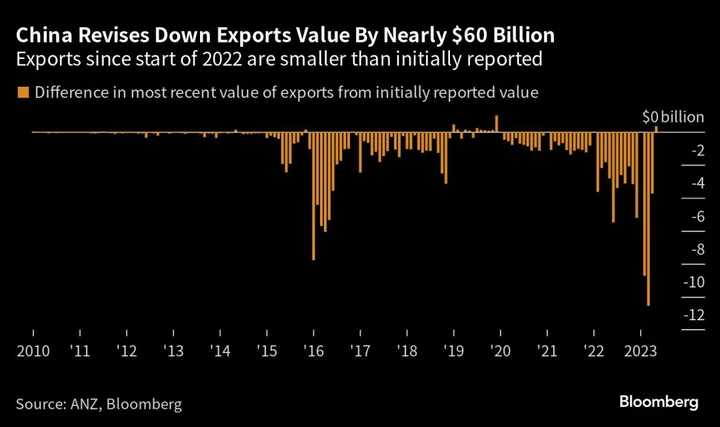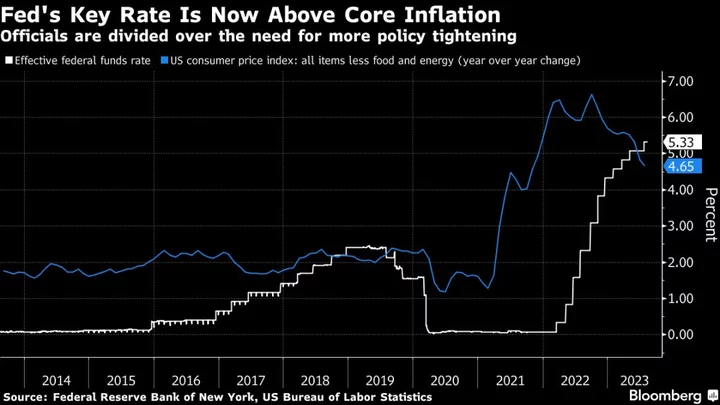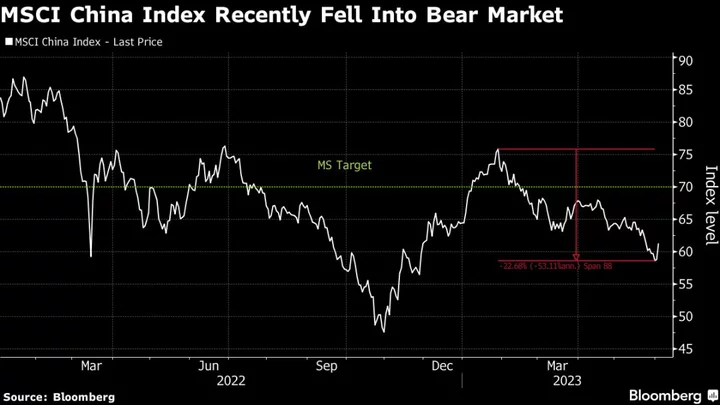China made the biggest downgrade on record to the value of a monthly export figure, a move that could paint a more flattering picture of trade data in months to come amid weak global demand.
The customs authority slashed $10.6 billion from the March data, when exports surprisingly jumped, as it reduced the overall value of exports for 2022 and early this year. The adjustment creates a lower base of comparison for year-on-year changes, resulting in more favorable growth rates for troubled exports.
The revisions were highlighted by several analysts after the latest trade data was published on Tuesday. The adjustment to the March export figure, which brought down the value to $305 billion, was the largest revision in history, according to calculations by analysts at Soochow Securities Co. and Australia & New Zealand Banking Group Ltd.
“China’s export data earlier this year were definitely a bit strange and the figures almost immediately raised questions,” said Christopher Beddor, deputy China research director at Gavekal Dragonomics, noting that March “dramatically” beat expectations.
Economists had forecast a more than 7% fall in exports, but the initial official data released immediately after March showed a 14.8% rise in US dollar terms from a year earlier. “It’s not surprising that officials are now substantially revising some of those numbers,” Beddor added.
Soochow Securities estimated the revisions to figures for last year could lift exports growth for 2023 by 0.6 percentage point, it said in a research note published Tuesday.
“The government is squeezing water from trade data,” said Xing Zhaopeng, a senior China strategist at ANZ. “By squeezing water, China’s data will look more solid and this year’s year-on-year growth will benefit.”
China this week reported a worse-than-expected decline of 14.5% in July exports — the biggest contraction since February 2020. The drop would have been even steeper, at 15.2%, if not for the data revision, according to Soochow Securities.
Overseas demand for Chinese goods has been shrinking from the record levels seen in 2021 and 2022 during the pandemic. Shipping giant A.P. Moller-Maersk A/S, a bellwether for the world economy, recently lowered its estimate for global container trade, indicating that weak demand continues to hamper economic activity after years of supply shocks.
China’s official economic statistics have long been questioned for their credibility, and authorities in the past have made drastic revisions to fiscal and growth data in certain regions. The National Bureau of Statistics in July sent inspection missions to six provinces in order to crack down on statistical fraud.
“In the past, concerns about the quality of economic data have mostly focused on areas that are hard to verify,” Beddor added. “Exports are typically less of a concern simply because there’s a foreign jurisdiction recording the other side of those transactions.”
--With assistance from James Mayger.
(Updates with expert comment in the fifth paragraph.)









